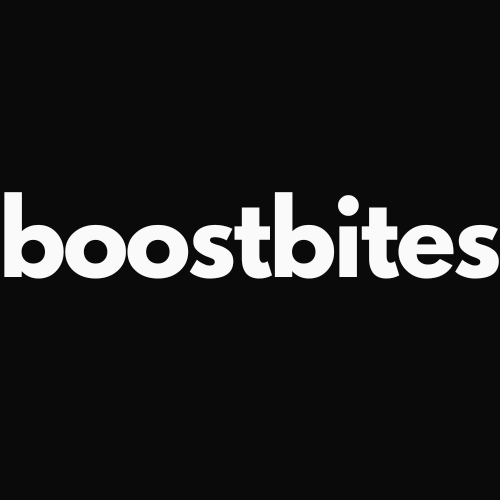Creatine is one of the most researched and widely used supplements in the world, but despite decades of data, it still sparks confusion - especially from newcomers. One of the most persistent myths in the supplement world is the belief that creatine is a steroid.
The short answer? No - creatine is not a steroid. Not even close.
Yet this misconception persists, often due to misinformation, gym gossip, or the simple fact that creatine works, and anything that noticeably improves performance tends to raise eyebrows. In this article, we’ll break down exactly what creatine is, what steroids are, why the confusion exists, and why creatine is safe, natural, and nothing like anabolic hormones.
We’ll also show you why daily, low-dose formats like BoostBites creatine gummies are ideal for beginners and everyday users who want consistent results without the complexity or stigma of more extreme substances.
What Is Creatine, Really?
Creatine is a naturally occurring compound made from three amino acids: glycine, arginine, and methionine. Your body produces it on its own, and you also get it from foods like red meat and fish. Creatine is stored in your muscles and used to regenerate ATP (adenosine triphosphate) - the primary molecule your body uses for energy during intense activity.
When you supplement with creatine, you increase the amount of phosphocreatine in your muscles. This helps you:
- Train harder and longer
- Recover faster between sets
- Improve high-output performance (like sprinting or lifting)
Creatine doesn’t alter hormones, doesn’t trigger synthetic muscle growth, and doesn’t act like testosterone - because it isn’t a hormone. It’s a fuel source. That’s the core distinction.
Learn more: What Is Creatine?
What Is a Steroid?
When people say “steroid,” they’re usually referring to anabolic steroids - synthetic derivatives of testosterone used to enhance muscle growth and recovery.
Anabolic steroids:
- Mimic or amplify natural testosterone
- Directly affect your hormonal system
- Are classified as controlled substances in many countries
- Require medical prescriptions for legal use (when not abused)
- Can cause serious side effects: liver damage, infertility, aggression, acne, gynecomastia, cardiovascular issues, and more
Creatine, by contrast, is:
- Legal and over-the-counter
- Naturally produced by the body
- Non-hormonal and non-stimulant
- Free from the side effects associated with anabolic use
So no - creatine is not a steroid. It’s not in the same category, function, or risk profile.
Why Do People Confuse Creatine With Steroids?
The confusion usually comes from a few key sources:
1. Visible Results
Creatine works - and often works quickly. Beginners taking creatine may gain 1-2kg of muscle water, appear fuller, and start lifting heavier within a few weeks. This can mimic the early visible signs of anabolic steroid use (muscle fullness, strength gains), which leads to suspicion.
2. Misunderstanding the Science
Because creatine improves performance and recovery, many assume it must be hormonal or chemically aggressive. But the effects come from improved cellular energy - not hormone manipulation.
3. Cultural Stigma and Gym Mythology
For decades, any supplement that “works” too well has drawn criticism - from protein powders to creatine. Misunderstandings spread fast in fitness spaces that lack science-backed education.
The Science Is Clear: Creatine Is Not a Hormone
Several large-scale studies and reviews - including work from the International Society of Sports Nutrition (ISSN) - have confirmed:
- Creatine has no effect on testosterone, estrogen, or DHT levels
- Creatine does not suppress or elevate your natural hormonal balance
- Creatine does not affect puberty, fertility, or endocrine function
It’s also been used safely in:
- Teen athletes
- Older adults
- Women
- Vegans and vegetarians (who often have lower baseline creatine levels)
Further reading: Is Creatine Safe for Teenagers? | Creatine for Women
Addressing the Other Myths Around Creatine
While we’re debunking the steroid myth, it’s worth cleaning up a few other false claims too:
- “Creatine causes hair loss” = No conclusive evidence supports this. A single small 2009 study showed a spike in DHT after high-dose loading, but no actual hair loss was observed. Learn more: Creatine and Hair Loss
- “Creatine damages kidneys or liver” = Proven false in over 25 years of clinical trials. Creatine may slightly raise blood creatinine (a marker used in kidney tests), but this is harmless in healthy individuals. More info: Is Creatine Safe to Take Every Day?
- “Creatine is unnatural” = Your body makes it every day. It’s as natural as vitamin D or iron.
So If It’s Not a Steroid… Why Take It?
Because it works. Creatine is one of the only legal, safe, and evidence-backed supplements that reliably improves:
- Strength and power output
- Muscle endurance
- Training volume
- Cognitive performance
- Recovery and anti-fatigue effects
It does all of this without stimulating your central nervous system, altering your hormones, or putting stress on your liver or kidneys.
It’s one of the few supplements recommended for almost everyone: men, women, teenagers, older adults, strength athletes, runners, and even non-exercisers looking to support brain health.
See related: Creatine for Mental Performance
Why BoostBites Makes Creatine Even Safer to Use
A huge part of why creatine myths still spread is poor supplement quality. Cheap powders with hidden ingredients, excessive sodium, sugars, or fake “proprietary blends” make people question what they’re actually taking.
BoostBites creatine gummies eliminate that uncertainty:
- 4.5g creatine monohydrate - lab-tested, the most researched form available
- Vegan, sugar-free, and stimulant-free
- No hormones, no hidden ingredients, no artificial colors or fillers
- Safe for daily use, with no bloating or GI stress
It’s the most convenient way to take creatine - without stigma, complexity, or side effects.
Explore the full vegan creatine collection or visit the homepage to learn more.
Final Verdict: Creatine Is Not a Steroid - It’s a Smart Fuel Source
Let’s be clear: Creatine is not a steroid. It’s not synthetic testosterone. It’s not illegal. It’s not hormonal. It’s not dangerous.
It’s a natural compound that helps your body generate more energy, train harder, recover faster, and stay mentally sharper - all without altering your endocrine system.
If you’ve avoided creatine because of outdated myths, now is the time to reconsider. It’s safe. It’s effective. And with BoostBites, it’s effortless.
Try BoostBites Creatine Gummies - no stigma, no confusion, just results.




